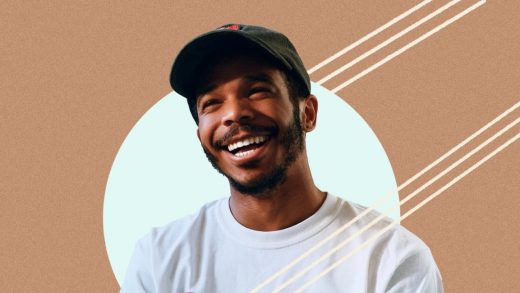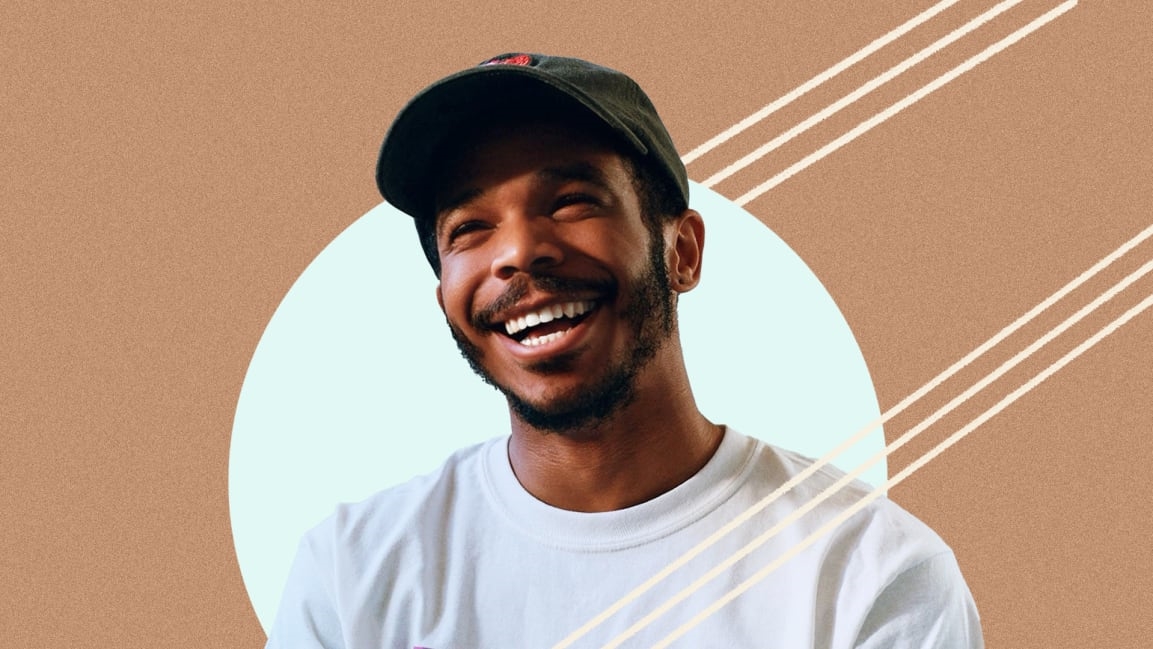How rapper Kota the Friend conquered burnout (with help from Pixar’s ‘Soul’)
Listen to the latest episode of Fast Company’s podcast Creative Conversation on Apple Podcasts, Spotify, RadioPublic, Google Podcasts, or Stitcher.
The topic of burnout has been front of mind for many people since the World Health Organization classified it as an “occupational phenomenon” in 2019. That feeling of relentless exhaustion and overwhelming stress has only been exacerbated by the COVID-19 pandemic. Brooklyn rapper Kota the Friend once counted himself among the 76% of people who say they’ve experienced burnout, but he’s found a way to conquer it.
“Quarantine really revealed myself to me,” Kota says in the latest episode of Fast Company’s podcast Creative Conversation. “I feel like 2021 has definitely been about correcting the things that I’ve realized about myself and the incorrect ways that I was living.”
Kota the Friend has charted his own course in hip-hop, not only in his mellow sound, which skews jazzy, but also in the fact that he’s remained independent for his whole career. That’s not to say that execs haven’t been knocking at his door. In fact, he’s turned down offers from three major labels to maintain his creative freedom. Even without the machine of a label behind him, Kota has managed to release three EPs, three mixtapes, and two studio albums in the span of six years, earning him more than 200 million global streams, 130 million views on YouTube, and co-signs from everyone from LaKeith Stanfield and Lupita Nyong’o to SZA and Erykah Badu. Kota is even dropping another studio album as well as a joint album with producer Statik Selektah in the coming months.
So how does he get it all done while keeping his sanity? Developing a routine, for starters.
“I take music seriously, so when I sit down to write I’ll be going off for four months straight—but I’m talking about all-day, every-day obsessive. And I realized that it wasn’t good for me,” Kota says. “So that’s why I’m doing things different now where I’m pacing myself.”
Kota has since developed a routine for his writing and producing that has alleviated the stress around working and parenting his four-year-old son.
“Here’s what I do: I wake up. I work on music, usually finish a song by 2 p.m. By 2 p.m., I’ll go hang out with my son, spend time with him for five hours. Then I have my whole night to myself not doing any work—it’s just my time,” Kota says. “I used to feel like there was so much to do, and I just wasn’t doing anything. I wasn’t getting enough done. I feel like I wasn’t giving enough energy to my son. I felt like I wasn’t giving enough energy to myself. It’s like I feel guilty for doing everything.”
To that point, Kota underlines the importance of unitasking.
“Never feel guilty for giving your energy to this one thing,” he says. “If you have a kid, give undivided attention to your child. If you’re working, give undivided attention to your work. If you want time to yourself, give that undivided attention, meaning don’t try to sneak in some work while you’re giving yourself self-care time.”
What’s driven the point home even further for Kota has been, of all things, Pixar’s most recent movie, Soul.
“That movie changed my life. I watched it probably about 30 times,” Kota says. “It’s easy to get caught in, what should I be doing? That anxiety comes from that same thing that I learned from Soul. It’s not about what I should be doing. It’s about what you do already. You don’t have to search for what you should be doing. I felt that.”
In this episode of Creative Conversation, Kota goes over his blueprint for success as an independent artist, explains why creating a routine for his creativity has produced his best work to date, and he dives deeper into his reading of Soul that will make you want to rewatch the movie as many times as he has.
Listen to the latest episode of Fast Company’s podcast Creative Conversation on Apple Podcasts, Spotify, RadioPublic, Google Podcasts, or Stitcher.
Fast Company , Read Full Story
(45)



